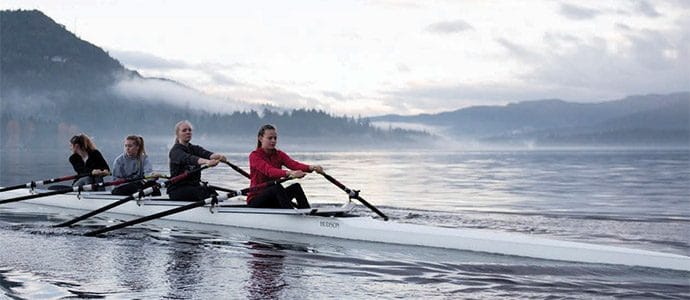Private School
3 min Read
Co-curriculars push students to find a passion, stretch their horizons

January 30, 2018
Private School
3 min Read

January 30, 2018

Activities outside the classroom are no afterthought at private schools. Instead, they are an essential partner to the academic curriculum.
Know what else is unique? Co-curriculars are not optional. Senior students may have more choice than juniors, but no one gets to take a pass on taking up something outside the classroom.
Students typically have to play a sport. But there are recreational teams, as well as competitive – so everyone gets a spot. Kids have to explore non-sports activities, too. Sports and clubs are typically held on separate days to solve the scheduling conundrum.
Even though many private schools are smaller than large public schools, they usually offer more teams, activities and variety. How? Because coaching, overseeing and supervising co-curriculars is mandatory for teachers.
Options vary widely, depending on the school – where it’s located and what its focus may be – as well as students’ interests, teachers’ skill sets, the season and facilities. In sports, offerings could be as diverse as badminton and basketball, rowing and equestrian, or squash and skiing. Individual sports and other physical activities might include figure skating, mountain biking, dance or yoga. Drama or drawing, concert band, music recording, visual arts, creative writing – these may be available as fine arts pursuits. And club possibilities may be things like stagelighting, woodworking, chess or robotics. Model United Nations, anyone?
Plus, parents don’t have to ferry their kids around to activities on evenings – and they know their children are playing with and being coached by people who share the school’s values.
“There’s so much to learn when you’re part of a team: how to work together, win together, lose together, with people different from you. The common experience, friendships that develop, the skills you learn, are so important.”
Michael Wolfe Stanstead CollegeStanstead, QC
“Put the buffet out and let them try it in a non-threatening way. There’s no expectation at excellence with extracurriculars. It’s too young to tell children that they don’t have an aptitude for something.”
Tim Peters, The Priory School, Montreal
“That’s just healthy, active living. As adults, we’ve got to find an hour a day to do something. If we don’t ingrain those healthy habits in this generation, we’re doing them a disservice. You’ve always wanted to play ice hockey but don’t know how to skate? There’s a development team. It’s not like you’re gonna ride the pine all season.”
Joe Seagram, King’s-Edgehill School, Windsor, NS
“You will always have the child who will be hesitant to join. When you make it so they must, they might be terrified at first, but they have to get out of their comfort zone. The world these children will be going into, they have to have a broad base of experience. It can’t just be what’s learned in the books anymore. Those days are gone.”
Eileen Daunt, Bayview Independent School, Toronto